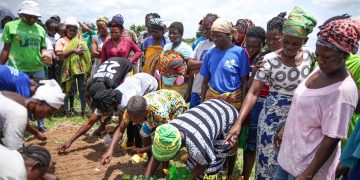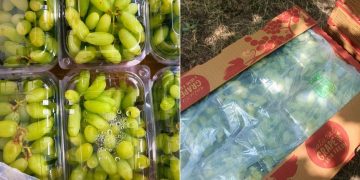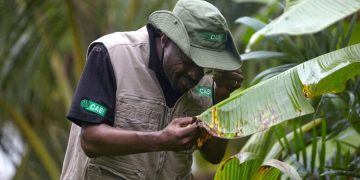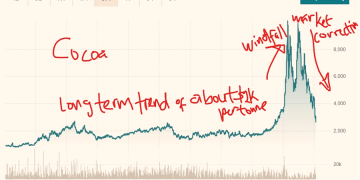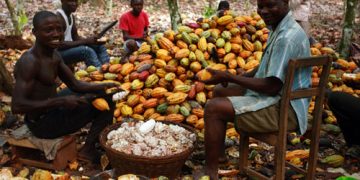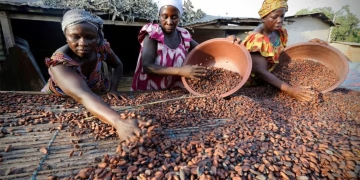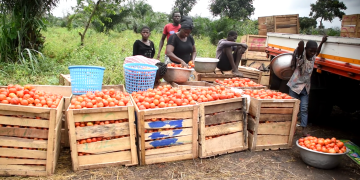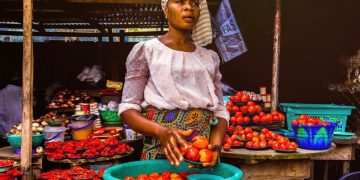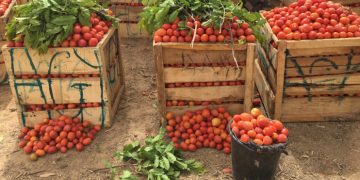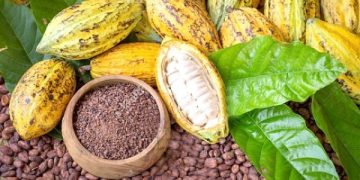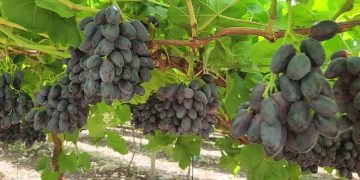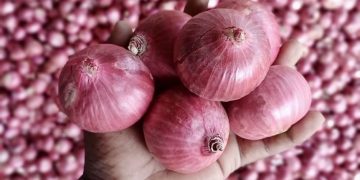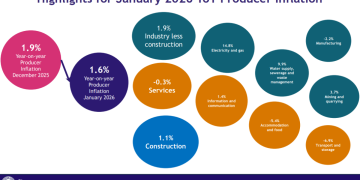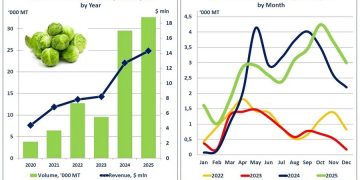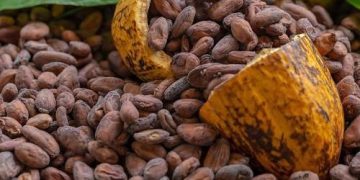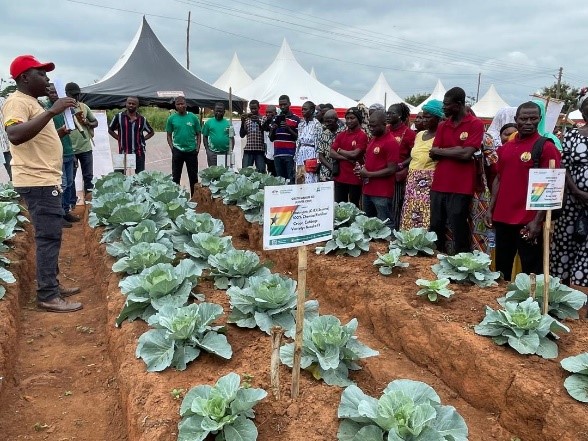In Ghana, vegetable farming remains a vital source of food and income for thousands of smallholder farmers. Yet, the sector continues to grapple with persistent challenges, especially low yields and poor profitability.
Despite the increasing demand for vegetables both locally and internationally, many farmers still rely on outdated practices, inferior seed varieties, and have limited access to agronomic knowledge.
These constraints result in reduced productivity and incomes. However, a quiet revolution is beginning to take shape. The introduction of modern agricultural technologies, improved seed systems, and farmer-led innovation models aims to build a resilient, high-value vegetable sector capable of boosting livelihoods and strengthening national food security.
One such initiative was engineered by the East-West Seed Knowledge Transfer Foundation (EWS-KT), born out of East-West Seed (EWS). EWS was founded over 40 years ago by the late Simon N. Groot, a sixth-generation seedsman whose vision continues to revolutionise vegetable farming in the tropics.
Mr. Groot believed that smallholder farmers deserved access to high-quality seeds tailored to their local conditions. His mission extended beyond seeds to include empowering farmers with the knowledge they needed to succeed.
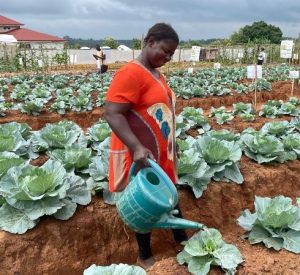
This vision gave birth to EWS-KT, a nonprofit foundation established to address farmers’ challenges in accessing quality seeds and agronomic knowledge. EWS-KT provides hands-on training, technical support, and demonstration sites to help farmers unlock their full potential in vegetable farming. The foundation set a global target of training one million farmers between 2021 and 2025. As of July 2025, 948,494 farmers had been trained.
In Ghana, EWS-KT has been implementing a project since 2023 titled ‘Transforming Vegetable Farming as a Business’ across 14 districts in the Bono, Bono East, and Ahafo Regions. The initial phase runs through to March 2025.
The project is anchored on farmer-led demonstration plots, which showcase the profitability of adopting better practices and improved seed varieties. These demonstration farms also serve as practical training hubs for neighboring farmers, ensuring knowledge is spread effectively. EWS-KT also employs digital tools to extend learning and support beyond physical locations.
Impact on Vegetable Farming
So far, 10,493 farmers 46% women and 41% youth (under 35) have benefitted from the project. A total of 356 demonstration farms have been established across the 14 districts. Approximately 45% of the beneficiary farmers have adopted at least one improved technique. Additionally, 26 agro-input dealers have been trained under the project.
One such beneficiary is Justice Korang, a 55-year-old farmer from Botokrom in the Berekum West District of the Bono Region. He shared how the project improved his livelihood.
“Until I came across EWS-KT, I used to cultivate about two acres of vegetables tomatoes or cucumbers generating an income of about GH¢5,000. But in the last 16 months, just a quarter of an acre of the same crops has earned me over GH¢10,000, thanks to improved seeds and good agronomic practices,” he said.
A farmer at Tanomu in the Sunyani West Municipality of Bono Region, Otuo Acheampong, also saw dramatic improvements. He began onion farming in 2023 with poor results but switched to EWS-KT seed varieties in 2024. “These varieties cucumber, onion, and cabbage have a short gestation period, are drought resistant, yield highly, and have a longer shelf life than conventional seeds. My produce became highly sought after in the market,” he explained.
The Ahafo Regional Director of the Ministry of Food and Agriculture, Kingsford Nyame, described the project as a fruitful partnership with other stakeholders in the agricultural space. “Agricultural Officers, Farmers and others stakeholders have benefited from vegetable trainings organised by East West seeds. Demonstration fields have been established in these operational areas to help farmers and other stakeholders acquire the knowledge and skills in vegetable production,” he said.
Project Extension
Building on this success, EWS-KT has secured funding approval for a four-year project extension. The next phase aims to reach 39,520 farmers across five regions Bono, Bono East, Ahafo, Ashanti, and Northern Ghana by promoting sustainable vegetable production through the use of improved seeds and modern techniques. The goal is to establish vegetable farming as a viable and profitable agribusiness venture.
An Agricultural Extension Officer at the Netherlands Embassy, Marian Armoo, expressed satisfaction with the project’s progress and impact. “Given the success so far, it’s important that all stakeholders plan for sustainability. I hope to see more partnerships. Agricultural research institutions should study this model for replication in other regions. Other development partners can also leverage such findings for additional support,” she said.
Conclusion
Ghana holds immense potential for transforming its vegetable sector through innovation, quality inputs, and farmer-centered education. As more smallholder farmers adopt improved seed varieties and modern practices, their productivity, incomes, and livelihoods are steadily rising—redefining vegetable farming as a commercially viable and dignified occupation.
With the next phase of the ‘Transforming Vegetable Farming as a Business’ project targeting tens of thousands of farmers, the momentum is undeniable. However, lasting progress will require consistent collaboration among government, private sector players, development partners, and research institutions. Together, they can build a robust ecosystem where vegetable farming not only feeds the nation but also drives rural economic growth, employment, and long-term food security.

